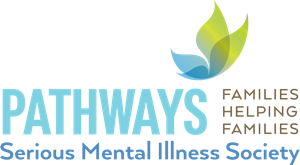
Award-Winning Mental Health Speaker Natasha Tracy
Natasha Tracy is an experienced mental health speaker and award-winning mental health advocate. She is also a recognized expert in bipolar disorder and has authored thousands of articles on various aspects of mental health. Her first book detailing experiences of living with depression and bipolar disorder was published in 2016.
She has spoken to organizations like the National Council for Mental Wellbeing, Health Union, Bark.us, Parks Ontario, and Mental Health America. She speaks on a variety of topics, often catering her presentation to a specific audience. Natasha’s presentations make people think, debate, laugh, and cry — often all at once. She consistently receives standing ovations.
Available Mental Health Presentations
Presentations can be customized to be from one hour talk to a whole-day workshop. Click on a topic for more information.
- Transforming Workplace Wellness: Harnessing AI for Proactive Mental Health Support — This talk explores how artificial intelligence (AI) can be harnessed to proactively support employee mental health, improving wellbeing, productivity, and retention across the organization.
- Mental Health with AI: Tools for a Healthier Work-Life Balance — This talk covers practical strategies for integrating artificial intelligence (AI) tools into daily routines, maintaining privacy and data security, and staying ahead of future AI trends that support mental wellbeing.
- How Poor Workplace Mental Health Costs Your Company Millions — And How to Stop It — This talk explores how poor mental health in the workplace silently drains your company’s profits and provides actionable strategies to create a supportive environment that boosts productivity and saves real money.
- Confronting Mental Health Stigma: Empowering Advocacy and Reducing Self-Stigma — This transformative talk empowers advocates to dismantle mental health stigma, equipping them with actionable strategies to combat negative stereotypes and reduce self-stigma, creating a more inclusive and supportive community.
- Mental Illness Exposed: A Raw Journey Through Bipolar Disorder — This talk offers an unfiltered and honest exploration of life with bipolar disorder, as Natasha Tracy shares her deeply personal story of struggle, survival, and resilience, challenging the stigma of mental illness and offering hope to those who need it most. Perhaps her most inspirational talk.
- Customized Talks — Do you need a talk for a specific group? Want to hear more about one topic, less about another? Natasha has you covered. Just tell her what you need and you’ll work together to design a customized talk.
“Your presentation was excellent! People responded with a lot of positive feedback . . . I think you got the wheels turning in people’s minds. Using AI to support emotional wellbeing is an important topic we were happy you were able to bring to the workforce.”
Transforming Workplace Wellness: Harnessing AI for Proactive Mental Health Support
Discover how artificial intelligence (AI) is transforming workplace mental health, offering innovative solutions to boost employee wellbeing and productivity. With a strong background in both technology and mental health, Natasha Tracy is uniquely qualified to address the ethical challenges and risks of AI-driven tools, providing actionable strategies to prevent burnout, mitigate AI addiction, and ensure responsible use of technology in mental health care. Ideal for Human Resources professionals and organizations aiming to lead in workplace wellness and stay ahead in an evolving digital landscape.
Learning Objectives
- Learn how to effectively integrate AI-driven mental health platforms and tools into workplace practices, enhancing overall employee wellbeing and productivity.
- Gain the ability to utilize AI systems to identify early signs of mental health issues and help implement timely, personalized interventions that prevent crises.
- Develop strategies to balance the use of AI with ethical considerations, ensuring employee privacy, transparency, and trust as you prepare for future advancements in AI technology.
“I never thought about how I could use technology to improve my own mental health and work-life balance. Thank you!”
Mental Health with AI: Tools for a Healthier Work-Life Balance
This talk aims to educate employees on how AI-powered tools can help them manage their mental health, improve their work-life balance, and enhance their overall wellbeing. Natasha Tracy uses her unique background in computer science and mental health to cover practical applications, how to integrate these tools into daily routines, and the importance of privacy and data security.
Learning Objectives
- Learn how to seamlessly incorporate AI-driven mental health tools into daily life to manage stress and anxiety and enhance overall wellbeing.
- Gain the knowledge and strategies to use AI for better time management, reducing burnout, and creating work-life balance.
- Develop a strong understanding of privacy considerations when using AI tools, and be equipped with insights into future trends that can further support mental health.
How Poor Workplace Mental Health Costs Your Company Millions — And How to Stop It
Unlock the hidden potential of your workforce by addressing poor mental health in the workplace. In this talk, Natasha uses her background as an ex-tech worker and a current mental health advocate to show you how mental health issues like anxiety and depression silently cost your company untold dollars and learn actionable strategies to create a supportive environment that boosts productivity, reduces turnover, and enhances overall employee wellbeing.
Learning Objectives
- Learn how poor mental health in the workplace leads to significant financial losses, including costs related to absenteeism, presenteeism, turnover, and healthcare.
- Identify key aspects of the workplace environment that contribute to employee anxiety, depression, and other mental health issues.
- Gain practical knowledge of how to implement effective mental health support systems, including assistance programs, training for managers, policy changes, and culture changes.
- Be equipped with tools to measure the success of mental health initiatives and understand the importance of ongoing commitment to maintaining a mentally healthy workplace.
“You’re brave to be so authentic. Your story shows true resilience and is inspiring. Don’t stop doing what you do. You are helping so many people.”
Confronting Mental Health Stigma: Empowering Advocacy and Reducing Self-Stigma
Discover powerful strategies to confront and reduce mental health stigma. This talk equips people with the tools needed to challenge harmful stereotypes, foster a supportive environment, and promote mental health awareness. Thanks to Natasha Tracy’s own bipolar disorder, she has lived through all aspects of stigma is the perfect person to talk about how to combat it. Perfect for those looking to make a real impact, this talk is essential for anyone committed to creating lasting change in their community.
Learning Objectives
- Learn about the origins and impacts of mental health stigma, including self-stigma, and gain strategies to effectively challenge negative stereotypes.
- Acquire practical tools to advocate for mental health awareness and reduce stigma in the community, fostering a more inclusive environment.
- Get equipped with techniques to overcome self-stigma, enhance self-compassion, and strengthen one’s mental health recovery journey.
Mental Illness Exposed: A Raw Journey Through Bipolar Disorder
This talk is a naked and authentic account of living with bipolar disorder every day. With over a decade of studying mental illness and a lifetime of personal experience, Natasha challenges the myths portrayed in media by fearlessly revealing the true realities of mental illness — no sugar-coating, just the raw, honest truth. Including everything from the darkness of electroconvulsive therapy and a suicide attempt to the light of recovery, this powerful presentation offers a unique perspective that both educates and inspires, breaking down stigma and offering tremendous hope.
Learning Objectives
- Gain a deeper understanding of what it’s truly like to live with bipolar disorder, beyond the myths and stereotypes often portrayed in the media.
- Discover the complexities of mental health treatment, including hospitalization, a suicide attempt, and the personal journey towards recovery, as experienced firsthand.
- Develop a more empathetic and supportive attitude towards people living with mental illness.
Past Clients












Law & Mental Health Conference





